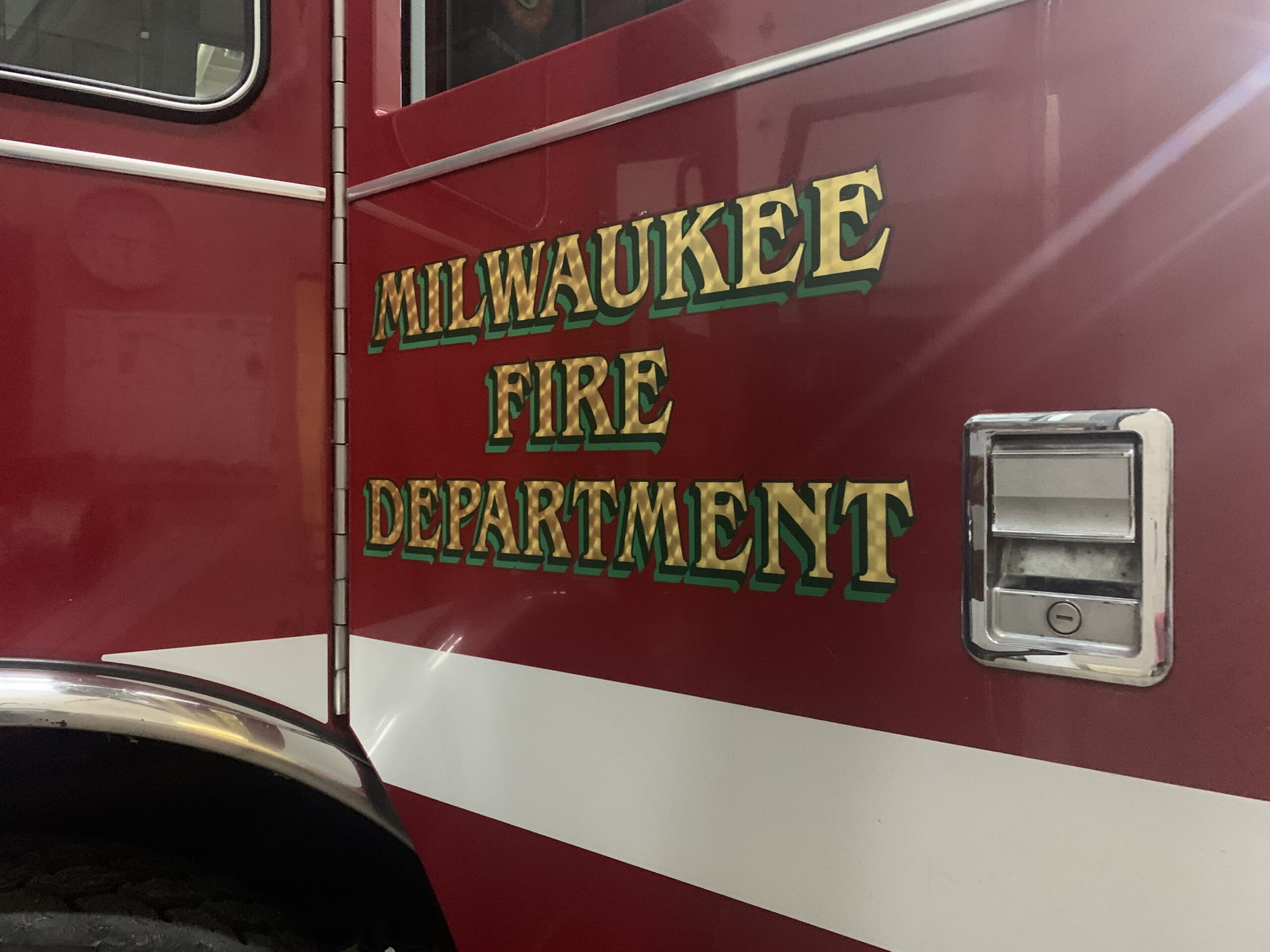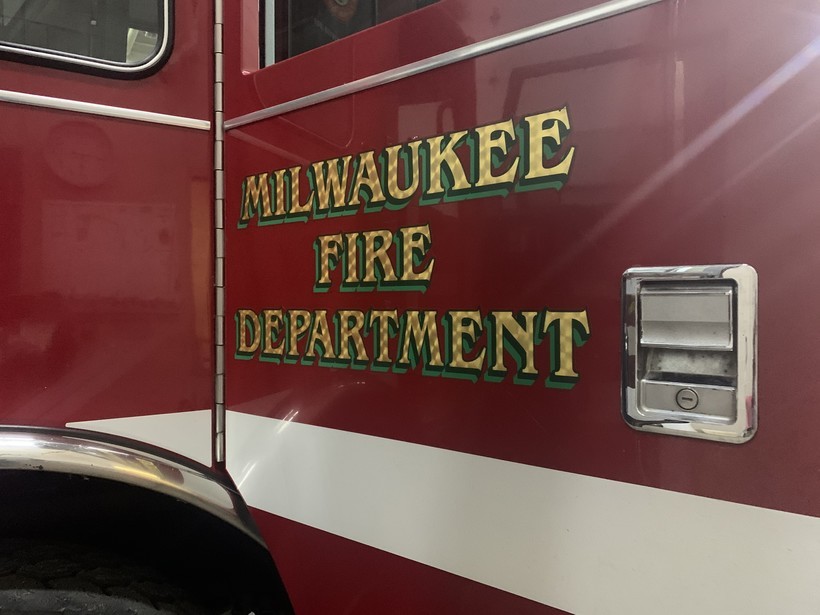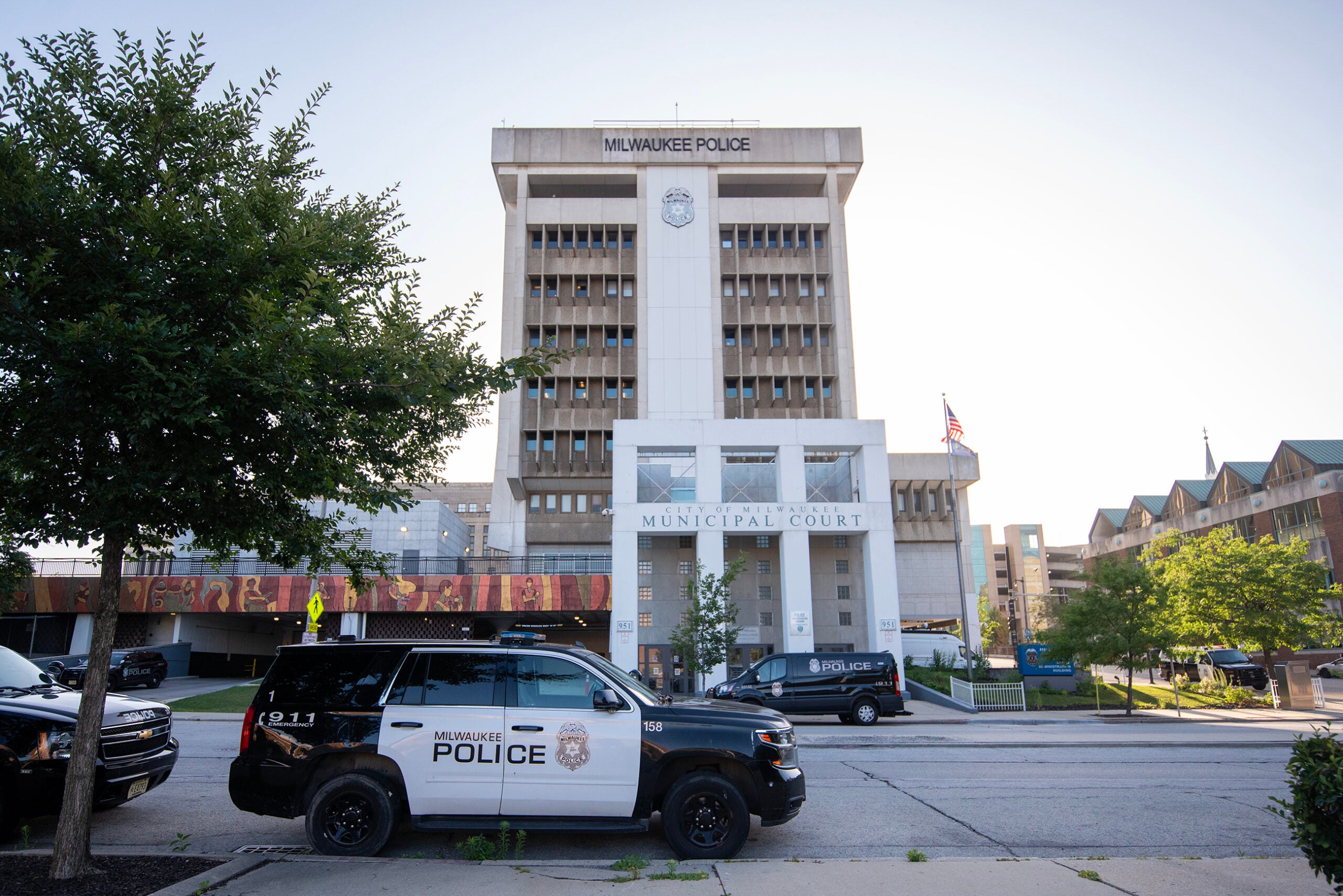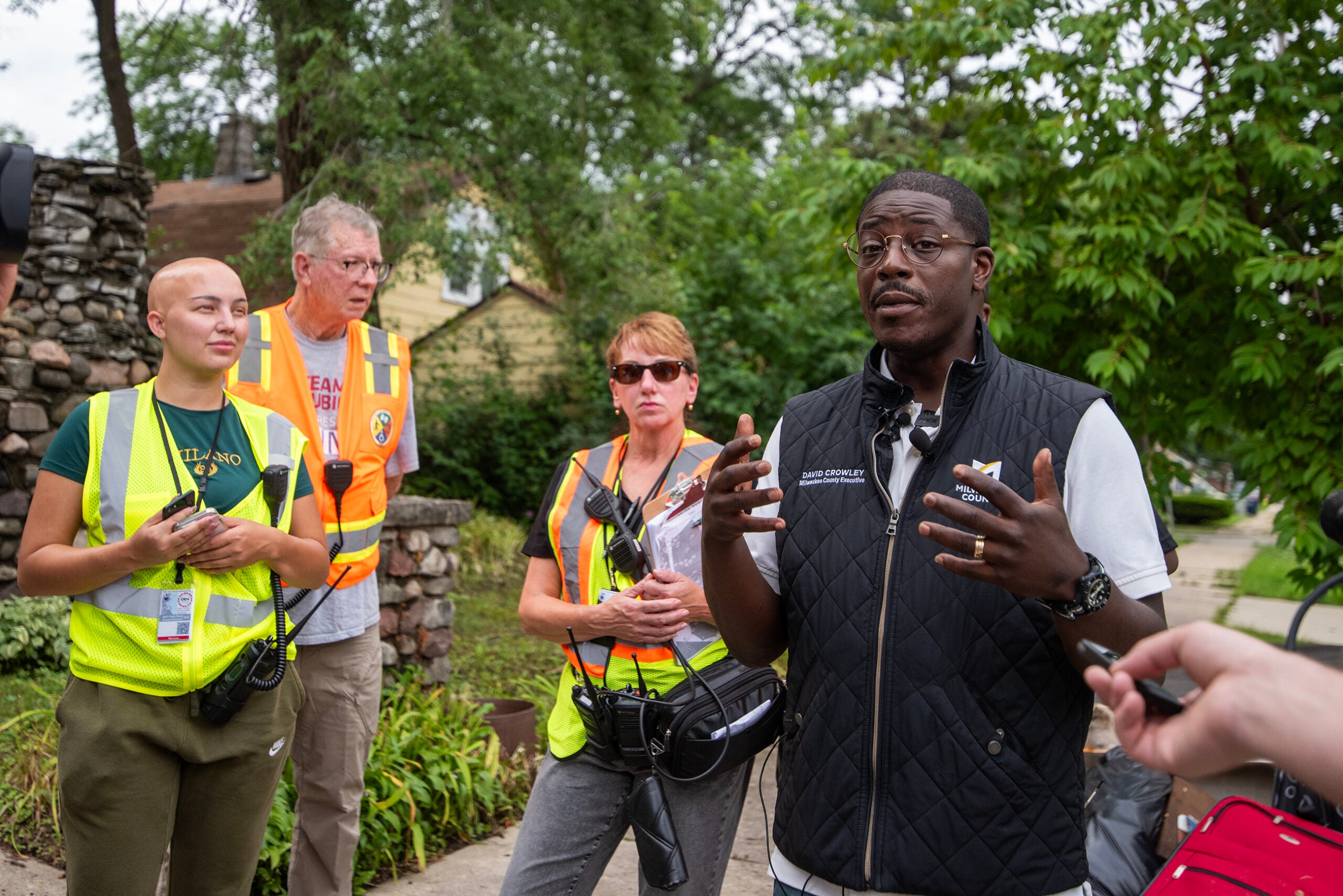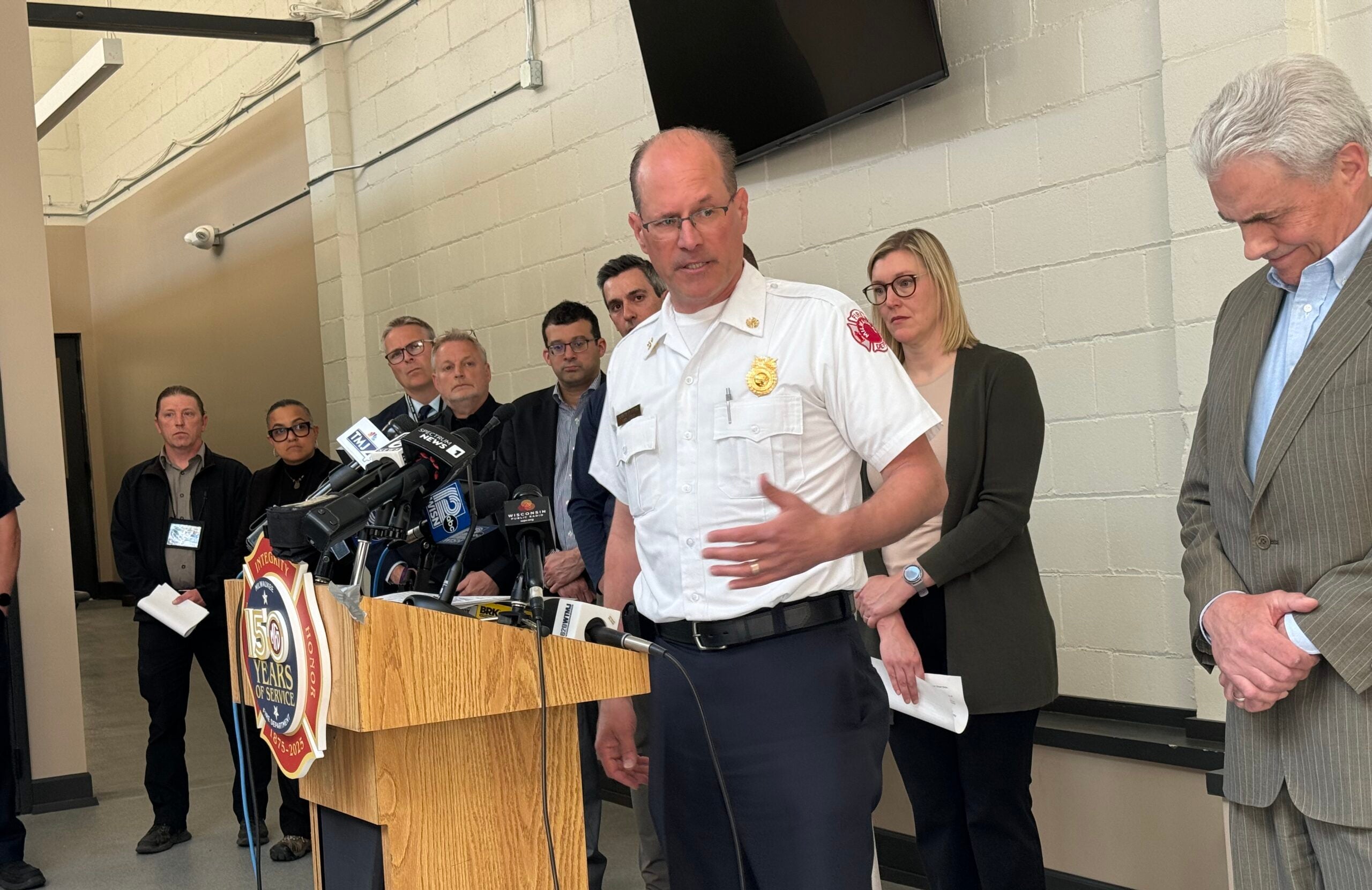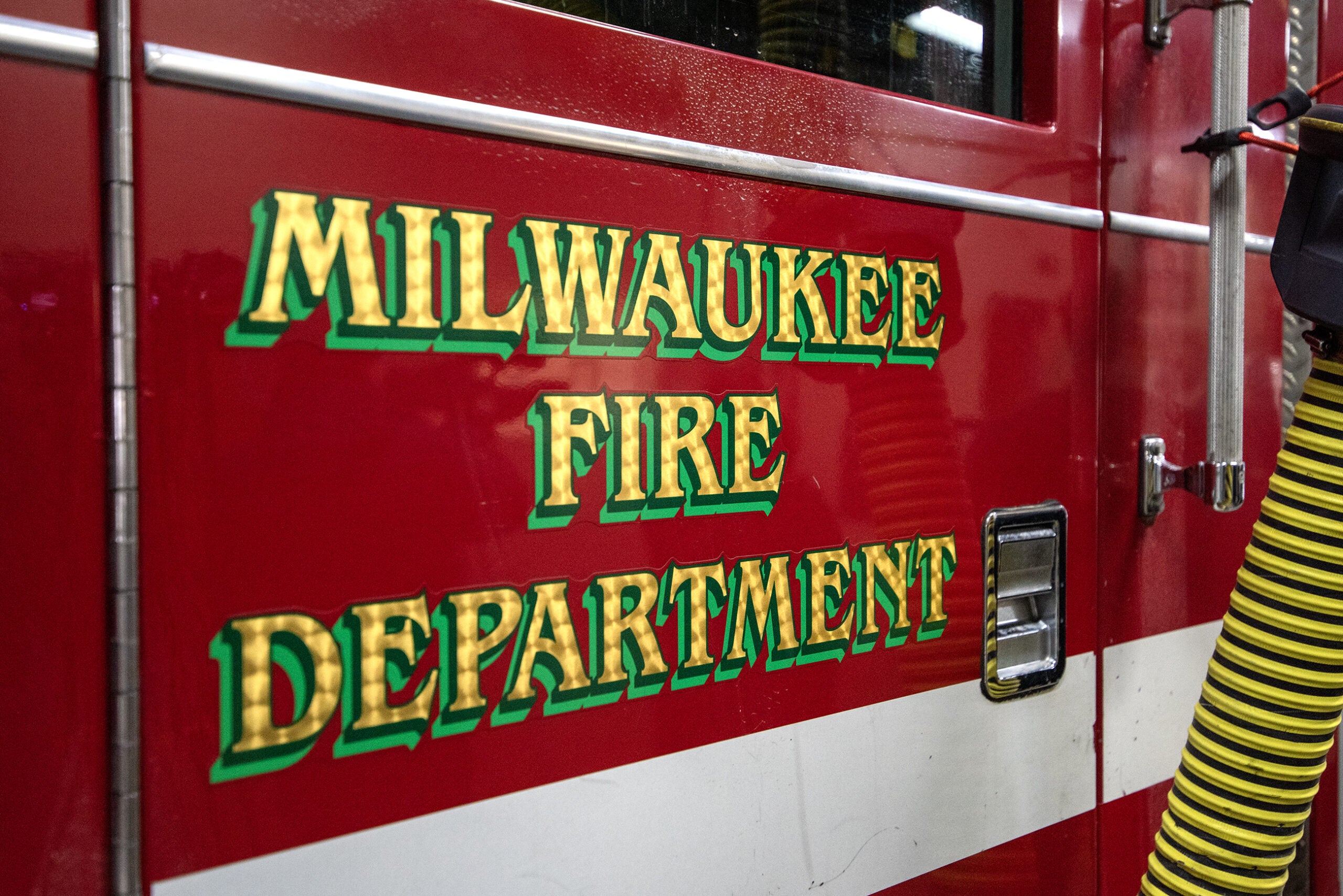After several years of fire station closures in Milwaukee due to budget cuts, a station reopened in the city this week, largely due to the recent state shared revenue deal.
That deal, which pumped over $205 million in new revenue into the city’s budget this year, also led to creation of a paramedic unit on Milwaukee’s north side.
“It is surreal. I can describe it in no other way — it’s surreal,” Milwaukee Fire Chief Aaron Lipski said about the addition of those services.
News with a little more humanity
WPR’s “Wisconsin Today” newsletter keeps you connected to the state you love without feeling overwhelmed. No paywall. No agenda. No corporate filter.
Six fire stations have closed in the city of Milwaukee in recent years due to financial constraints, leading to increased response times for residents. Lipski also said the Milwaukee Fire Department has seen an increase in calls for service and fewer firefighters and paramedics to respond to those calls.
“All we’ve done for a decade and a half is lose firefighters and paramedics and shut down fire engines and ladder trucks and close fire houses,” Lipski said. “This is an entirely different way of thinking, to be adding back.”
When asked if he believes the station reopening will save lives, Lipski was quick to answer.
“Oh, absolutely it will. There’s no question,” he said.
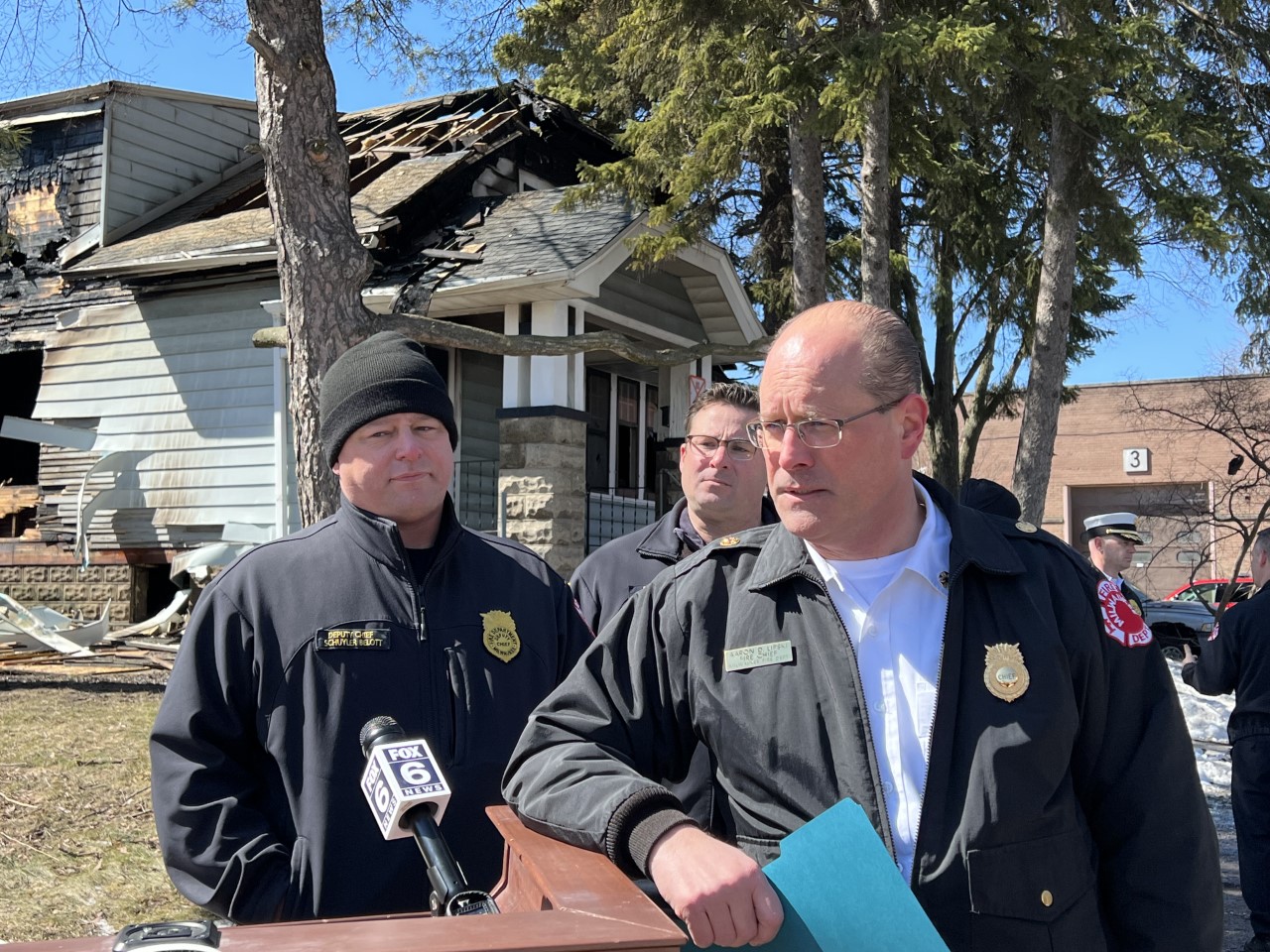
Milwaukee Fire Chief Aaron Lipski. Evan Casey/WPR
Milwaukee Mayor Cavalier Johnson pointed to the bipartisan law to overhaul local government funding — which also allowed the city to pass a 2 percent sales tax hike — as a game changer for the city’s fire department. That law, which was supported by Johnson, was passed by state lawmakers and signed by Gov. Tony Evers last year.
“Look at what we’re getting because of it. Look at what we’re getting because of our collective efforts,” Johnson said during a press conference this week. “Folks in Milwaukee will be able to receive additional services — life saving services — and that is the most important takeaway from all the things that we did over the course of the last year.”
Joe Pulvermacher, the president of the Wisconsin Fire Chiefs Association, praised the reopening and the new paramedic unit.
“The fact that Milwaukee has been able to upstaff their response and put vehicles back into stations that needed to be temporarily closed is a huge benefit,” Pulvermacher said.
The reopened Fire Station 17, which operates on the city’s south side near Milwaukee Mitchell International Airport, had been shuttered since 2020. Since its closure, the station has mainly been used for storage. Lipski also said that’s led to an increase in response time in the area.
“It’ll be nice to have that (response times) go back down and citizens that live there and people that work and play there don’t have to wait longer for their response now,” Lipski said.
A new paramedic unit at Fire Station 36 on the city’s north side will also provide “extremely in demand advanced life support care” for city residents, Lipski said. Homicides and drug overdose deaths have hit record highs in Milwaukee in recent years.
‘Need has gone up while the money has gone down’
The state shared revenue law came with strings attached for the city. For the Milwaukee Fire Department, that includes making sure they maintain an on-duty staff of 218 firefighters by 2033. To help meet that goal, the city’s budget includes funding for six new firefighter positions this year, which will bring their daily staffing to 198.
But even with the extra money, Milwaukee is still facing future budget woes, with an estimated budget gap in 2025 of between $20 to $50 million.
Miriam Horwitz, the chairperson of the Milwaukee Fire and Police Commission, said the city has “fallen behind” in providing needed services for its residents. Although she’s happy about the reopening, she said that was only a start.
“The need has gone up while the money has gone down,” Horwitz said.
But without the deal, the city would have had to make “emergency” cuts to several services. Milwaukee officials explored those options during a meeting last year. A 10 percent cut to the Milwaukee Fire Department could have led to the closure of seven additional fire stations in 2024. Cuts of up to 25 percent of that department’s budget could have eliminated 89 to 222 of the department’s current staff of about 750.
It’s still unclear what the department’s budget will look like in 2025, but Lipski has remained optimistic. He said the fire station reopening is a step in the right direction.
“I am confident that, now that we have a leg up so to speak, we will be able to carry that momentum on,” Lipski said.
Wisconsin Public Radio, © Copyright 2025, Board of Regents of the University of Wisconsin System and Wisconsin Educational Communications Board.

